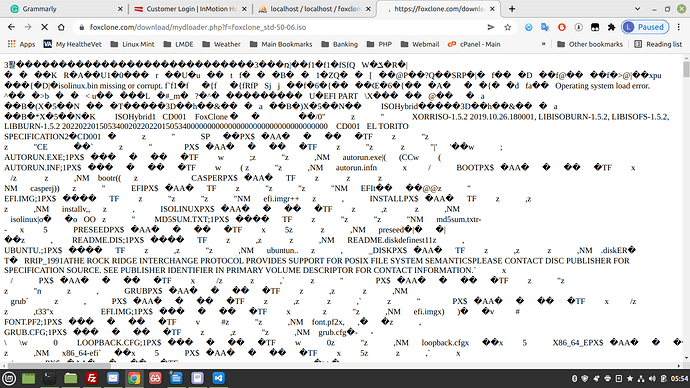When a user tries to download a file on my website, it appears that it’s opening the file instead of downloading it. The code works properly on my local apache server. Here’s the code that should be downloading the file when they click a download button.
<?php
$php_scripts = '../../php/';
require $php_scripts . 'PDO_Connection_Select.php';
require $php_scripts . 'GetUserIpAddr.php';
function mydloader($l_filename=NULL)
{
$ip = GetUserIpAddr();
if (!$pdo = PDOConnect("foxclone_data"))
{
exit;
}
if( isset( $l_filename ) ) {
header('Content-Type: application/octet-stream');
header("Content-Disposition: attachment; filename={$l_filename}");
header('Pragma: no-cache');
header('Expires: 0');
readfile($l_filename);
$ext = pathinfo($l_filename, PATHINFO_EXTENSION);
$stmt = $pdo->prepare("INSERT INTO download (address, filename,ip_address) VALUES (?, ?, inet_aton('$ip'))");
$stmt->execute([$ip, $ext]) ;
$test = $pdo->query("SELECT lookup.id FROM lookup WHERE inet_aton('$ip') >= lookup.ipstart AND inet_aton('$ip') <= lookup.ipend");
$ref = $test->fetchColumn();
$ref = intval($ref);
$stmt = $pdo->prepare("UPDATE download SET lookup_id = '$ref' WHERE address = '$ip'");
$stmt->execute() ;
}
else {
echo "isset failed";
}
}
mydloader($_GET["f"]);
exit;
This is what the screen looks like:
I’d appreciate some help on this.

